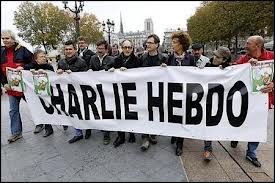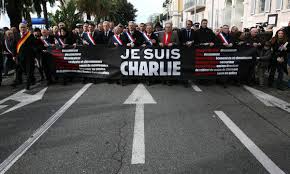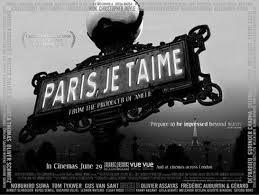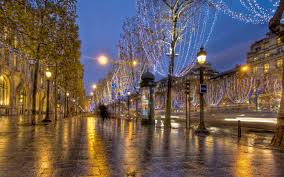*Editor’s note: mourning Paris’ loss a second time, after the horrific attacks on Friday, Nov 13th. I can only bow my head and offer all involved my heartfelt sorrow and support. STORY

This weekend, I mourn in spirit with my favorite city in the world as Paris rallies and attempts to recover from the massacre that commenced last Wednesday, when a pair of Islamic extremists opened fire on employees of the satirical weekly, Charlie Hebdo, a publication known for its strident non-conformity, its no-holds-barred humor and cartoons. The gunmen were Cherif and Said Kouachi, seeking vengeance for controversial cartoons published. So they took out cartoonists. They took out journalists. They massacred not just the staff of Charlie Hebdo, but the principles of liberty of thought and expression.
How helpless we peace-loving people are against those who believe violence is the only way to solve conflict. People who are powered by vendettas, dreams of retaliation, who seek out opportunities to kill something, whether it be a person, someone else’s treasured precepts or institutions.
Oh, my poor, beloved Paris. This week, I’m grieving for the Parisians, grieving with them. Thinking of those streets, neighborhoods, landmarks that I know and cherish. What must it be like to be in Paris at this moment? I’m going to guess it’s extraordinary. Pathos tends to bring out the extraordinary, the noble and honorable in people, particularly when it’s a civic tragedy. You’re hurting and you look around and understand that others are hurting in the same way. You’re more thoughtful in your choices, more inclined to reach out. Comfort and prosperity build a wall of oblivion around us. Pain and loss break it down. The world is far less comfortable without that wall. But there’s so much to behold at moments like that. A different flavor of comfort. A sense of community. Of compassion. There’s a weird beauty to it all.
I’m not going to go in the direction of stormy rhetoric, of reacting to what the Kouachi brothers did. While it’s important to express solidarity against evil and violence at a time like this, it’s equally important not to perpetuate the darkness, this thirst to avenge. Instead this morning I lit a candle, sat on my meditation cushion, played some Gabriel Fauré in the background, and for twenty minutes, did nothing. (It’s harder than it sounds.) I breathed in the goodness inherent in the world, and breathed out the toxic stuff, the junk that crowds our minds, our hearts, our culture, that simply does not serve us. Another breath, and I released the darkness, the reactions, the rage against violence, the noise of it all. You might be shaking your head, saying, “oh, how woo-woo” or “how Santa Cruz of you.” Hey. Give it a try. Number one, it’s easier than it sounds (yes, above I said “it’s harder than it sounds.” It’s both things at once, the paradox of human consciousness). Number two, it’s what you can offer the world, right at this present moment. Thoughts can change the world. Even silent, wordless ones.
When Fauré is all played out, I will visit the music of Claude Debussy next. I’d written a blog about his much-loved “Clair de Lune” that I was all set to post today. But suddenly it felt more important to put this, too, aside, and simply be with Paris, if only in spirit.
PS: just found some gorgeous, affecting photo coverage of today’s (Sunday January 11) march: http://www.slate.com/blogs/the_slatest/2015/01/11/je_suis_charlie_more_than_40_world_leaders_head_up_massive_paris_march.html?wpsrc=fol_tw
**
Okay, I’m going to do one last thing today, with Paris on my mind. Years back, I wrote an essay called “Falling in Love.” It didn’t get picked up by the publication considering it, but I still have a fondness for it, and how it encapsulates my love for Paris. So, here you go.
“Falling in Love”
In the summer of 1987, I fell in love in Paris. Or did I fall in love with Paris? The end result was the same: accelerated heartbeat at the mere mention of the name, a sadness tugging at my heartstrings that so many miles separated us. Something eternally connects me to France and its capital. When I’m there, a restless, seeking part of me grows still. A tightness eases. And every time I leave France, it breaks my heart all over again.
On that first trip, I was with my friend Nancy, as we made our way home after two years in the Peace Corps in Central Africa. Traveling through Belgium and Germany, I’d felt uncomfortable in the presence of so many white people. In London, the alien sound of my native language instead of the French to which I’d grown accustomed, had filled me with great unease. I missed Africa in a way I couldn’t explain. Not the dirt, heat or deprivation certainly—more the soul of the place. In the other European countries, the feeling, the warmth was gone. In Paris, it all came rushing back.
Paris in late July was all heat and life, continual motion and sound. Upon our arrival at the Gare du Nord, Nancy and I darted through chaotic, diesel-choked traffic outside, finding a café whose tables spilled deep onto the sidewalk. Grabbing a seat, we plopped down, tucking our duffel bags under the table, and watched life parade past. Elderly French women, artfully attired in suits, heels and matching scarves, walked their dogs through the throng of camera-wielding tourists, while sharp-featured businessmen in dark suits hurried past lounging teenagers and groups of scantily-clad backpackers. Taxi horns blared and jackhammers rattled over the low rumble of traffic, the steady buzz of voices. I inhaled deeply the intoxicating odor of coffee and nearby baking baguettes, the palpable excitement in the air.
After our coffee, we found a hotel, dumped our bags and leapt right back out to explore the city—the cathedrals, museums, arches, towers, arcades and neoclassic buildings, all dusted with decades, even centuries of accumulated grime. I gobbled it all up: the staid, settled Rive Droite with its majestic boulevards punctuated by fountains, sculptures, elegant squares, as well as the chaotic, slightly feral Rive Gauche across the Seine, with its crowded streets of the Quartier Latin, hordes of young people, the swirl of French, German, Italian, English and Arabic voices all coming together. I didn’t look twice at the trash spilling from the city’s bins, the overpowering smells of fish and aging cheeses closer to the markets, the nearby cardboard boxes filled with rotting peaches. It all just seemed to be part of the Paris character. Observing the 360 degree panorama of the city from the high perch of the Arc du Triumphe, a shiver of happiness came over me. I belong here, a voice in me whispered.
Jean-Luc was the owner’s nephew at our tiny hotel. Short, dark haired and well-built, he helped out occasionally at the reception desk. Unlike other Frenchman, his mother was from Spain, and he’d lived in Morocco. He composed jazz music, he informed us, his face suffused with artistic passion. He was courteous, friendly and informative. He also had penetrating dark eyes with double fringed black lashes that seemed drawn to the exotic patina of Africa that still clung to me. In the tiny reception area with its fading wallpaper, scuffed linoleum and too-bright light, he sat with us on the leatherette sofa and listened to our Africa stories, sharing a few from Morocco.
Jean-Luc gave us touring tips for Paris off the beaten path. One afternoon Nancy and I explored the working-class Belleville quartierand discovered an African neighborhood where women dressed in their colorful, traditional two-piece West African outfits and matching headdress, the men in their flowing African boubous. It was like being back in Africa—albeit a more sophisticated, developed one—hearing the cadence and trill of African-accented French, the crowds of dark faces, the acrid odor of cheap perfume and body odor, the sight of familiar knobby, hairy tubers and oversized mangoes displayed in crates outside stores. And yet, it was only a metro ride back to the dignified Right Bank, with the Champs-Elysées and Rue St. Honoré shops offering top designer names and prices. Nancy and I did our own shopping in Belleville. In an upstairs apartment that doubled as a clothes shop, we rummaged through dozens of designer dresses splayed on living room couches; piles of silky blouses, cotton and linen slacks on the kitchen table. It was Paris elegance, luxury and beauty at a price I could afford. I bought an Yves Saint Laurent dress for roughly $50.00.
The night before Nancy and I left Paris, Jean-Luc took us out to hear jazz on the Rive Gauche. I wore my new outfit—a sleek black and white dress that draped seductively over me—and new, strappy, high-heeled shoes. Nothing could dampen my spirits. Even the rain that pattered down on us felt more like a baptism than an affront. I laughed, skipping across the street and felt Jean-Luc’s eyes on me. It felt like melting butter, sliding down my insides, coating me with a delicious feeling of anticipation. The three of us raced to the curb to avoid being splashed on by taxis whooshing past. The dress I was wearing flapped about. I hadn’t worn something so pretty and sexy in two years—a high quality cotton that whispered against my skin, like Egyptian cotton bed sheets against a naked body. I felt beautiful, powerful, laughing at the wind that wanted to lift my dress, revealing more of me to Paris.
Inside the dimly lit jazz bar, we grabbed a table with three sagging velveteen chairs. We drank red wine and shouted over the music as cigarette smoke swirled patterns above us. From a circulating Gypsy vendor, Jean-Luc bought two red roses. When he handed me the second one, his fingers grazed over my mine. He held my gaze. I studied the sharp angles of his face, the way they softened when he smiled. And then he wasn’t smiling. The intensity in his eyes shot through me as the rain drummed against the window. Inside it was warm, the windows steaming up. There was a change in the air—the feeling of moving toward something, the feeling of being both attracted and attractive. It invaded my senses like a drug—the breathlessness, the butterflies, the buzz deep inside my groin. The red wine I gulped too fast burned a trail down my throat, warming my stomach.
When the three of us left two hours later, the rain had abated. My new shoes cut horribly into the back of my heels as we walked and soon twin blisters made each step throb with pain, but I didn’t care. I was in Paris, surrounded by beautiful, adventurous people who lived, who embraced the activity, music and wine, the love, the laughter of the city. I was going back to my hotel, where anything might happen (judging by the looks Jean-Luc and I had been exchanging, it was pretty obvious that “anything” would happen). I had a few hundred dollars to my name, no car, no place to live beyond my parents’ house back in Kansas. I had no job waiting ahead, no prospects, no clue of what I wanted to do with my life. I owned a duffel bag crammed with faded clothes (and soon, one Yves Saint Laurent dress) and a backpack, which pretty much comprised my worldly possessions. And yet I’d never felt richer, more optimistic, more full of life.
The next day, Nancy and I left Paris for London and our eventual return back to the U.S.. Numb from lack of sleep, still reeling from the previous night’s sensuality, I sat outside on the deck of the ferry that carried us away from France toward England, alone in the drizzle that coated everything with grey, and I cried and cried. At my lowest, I looked toward the direction I knew was France, now obscured by fog and distance. Growing quiet, I heard a voice deep inside me whisper, “I’ll always be here for you.” The words ignited a tiny flicker in the chill of my heavy heart. I knew it would be a long time before I saw Paris again (I would see Jean-Luc sooner, but that’s a different story with an less satisfying conclusion, so we won’t go there), but the whispered words resonated true.
Paris has remained true to her promise. Five years later when I returned on my honeymoon, the love flooded right back. My new husband Peter and I held hands and strolled around, licking ice cream cones in the mild June evenings. We perched on bridges, watching below as brightly lit bateaux-mouches slid through the dark waters of the Seine, spotlights flashing up at us, and happily agreed that Paris was one of the world’s most seductive cities.
When Peter and I moved to London two years later as expatriates, we spent long weekends visiting, exploring Paris’s lesser known neighborhoods, at the relaxed pace of almost-locals with six weeks vacation time and no jet lag. At ease with French after my years in Africa, more grounded than I’d been on that first trip, I chatted with the reserved Parisian shopkeepers. In spite of my sneakers, the lemon-yellow windbreaker and wholesome smile that still screamed American, the shopkeepers would thaw as I praised the buttery, flaky, inimitable French croissants, the aching perfection of the crunchy little tips. Our relationship would grow positively warm whenever I asked for advice on wearing a scarf the right way (answer: there is no wrong way), nodded with agreement over the importance of a good vinaigrette and the proper usage of le subjonctif, or solicited their opinion over Paris mayor Chirac’s chances at the presidency. We’d finish our conversation, I’d wave my crusty lunchtime baguette in a farewell and they’d nod, smile, and wish me une bonne journée.
Returning to the U.S. after two years in Europe, Peter and I began, with some reluctance, to settle down to American life. Eighteen months later, the purchase of a house in the mountains imminent, we took one more trip to Paris, timing it with the maiden European voyage of my sister and her husband. “This is Paris,” I’d told my sister with pride, as she and her husband swayed with jet lag and glanced bleary-eyed around them. I was as eager for her to love it as I’d been in introducing Peter to the family. Happily, she did.
We spent five days in Paris together, always meeting for dinner. One evening, my sister Laura and I planned a cocktail party in our rented cinquiéme arrondissement apartment. We hurried down the sidewalk to the neighborhood store together, dead leaves and trash skittering alongside us. It was dark, and yet Paris at night never felt really dark, the brightly lit bars and brasseries spilling light into the night, aided by signs and iodine lights and corner street lamps. Groups of happy people bobbed around us, music blared from car stereos, and there was a party feeling in the crisp October air that made my pulse quicken. We popped into a tiny neighborhood shop and bought beer, cheese and savory crackers, snickering over the poor selection of snacky foods. Afterwards, we laughed and chattered about everything and nothing, our feet skipping down the cool gray pavement. Suddenly I had the same explosion of euphoria that I’d had ten years previous, alongside Nancy and Jean-Luc. I was in Paris with my little sister on a Friday night, with the promise of adventure in the air. Life didn’t get better. But alongside that peak moment, I sensed a shift, as if we were on the cusp of something irrevocable. Peter and I were about to move into a house, parenthood would eventually follow, and I sensed that would be it. I wanted to stop in my tracks and embrace the Paris moment, freeze it, lock away this burst of joy that almost hurt, like a diamond that flashed and scintillated so brightly, you had to turn away or be blinded.
It hurt because Paris euphoria wasn’t meant to be boxed up and taken home. Its essence can’t be captured, ever. We had a rollicking party that night, a fabulous dinner, and finished our week together. Peter and I saw Laura and her husband off, and a day later, it was our turn. With a soft hiss of regret, our train pulled away from the platform at the Gare du Nord, slowly carrying me away from Paris once again. And it hurt as much as it did the first time, sitting on that ferry, watching France fade into the mist.
As the train picked up speed and Peter settled down for the ride to our next destination, I leaned back in the seat, shut my eyes and let the tears spill. The shunk shunk of the train’s wheels against the tracks eventually created a soothing cadence, as if Paris were whispering one final message.
I’ll wait for you. I’ll wait for you.



I have similar feelings. Your essay is wonderful. Thank you,
Thanks so much for the comment, Paulina. It’s always music to a writer’s ears when someone says, “I have similar feelings.” : )